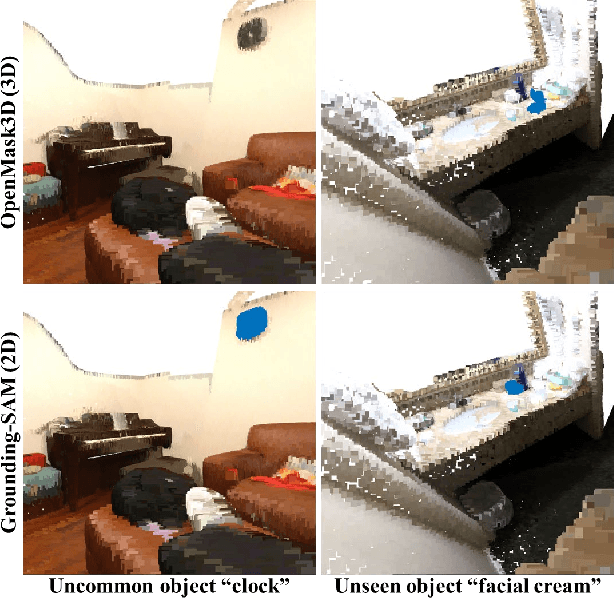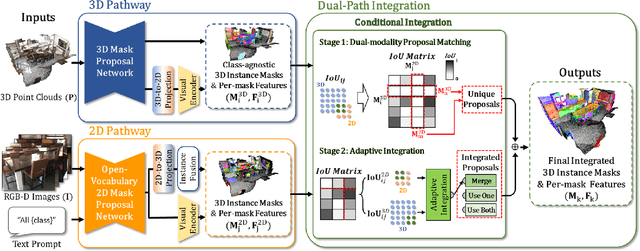Zero-Shot Dual-Path Integration Framework for Open-Vocabulary 3D Instance Segmentation
Paper and Code
Aug 16, 2024



Open-vocabulary 3D instance segmentation transcends traditional closed-vocabulary methods by enabling the identification of both previously seen and unseen objects in real-world scenarios. It leverages a dual-modality approach, utilizing both 3D point clouds and 2D multi-view images to generate class-agnostic object mask proposals. Previous efforts predominantly focused on enhancing 3D mask proposal models; consequently, the information that could come from 2D association to 3D was not fully exploited. This bias towards 3D data, while effective for familiar indoor objects, limits the system's adaptability to new and varied object types, where 2D models offer greater utility. Addressing this gap, we introduce Zero-Shot Dual-Path Integration Framework that equally values the contributions of both 3D and 2D modalities. Our framework comprises three components: 3D pathway, 2D pathway, and Dual-Path Integration. 3D pathway generates spatially accurate class-agnostic mask proposals of common indoor objects from 3D point cloud data using a pre-trained 3D model, while 2D pathway utilizes pre-trained open-vocabulary instance segmentation model to identify a diverse array of object proposals from multi-view RGB-D images. In Dual-Path Integration, our Conditional Integration process, which operates in two stages, filters and merges the proposals from both pathways adaptively. This process harmonizes output proposals to enhance segmentation capabilities. Our framework, utilizing pre-trained models in a zero-shot manner, is model-agnostic and demonstrates superior performance on both seen and unseen data, as evidenced by comprehensive evaluations on the ScanNet200 and qualitative results on ARKitScenes datasets.
 Add to Chrome
Add to Chrome Add to Firefox
Add to Firefox Add to Edge
Add to Edge